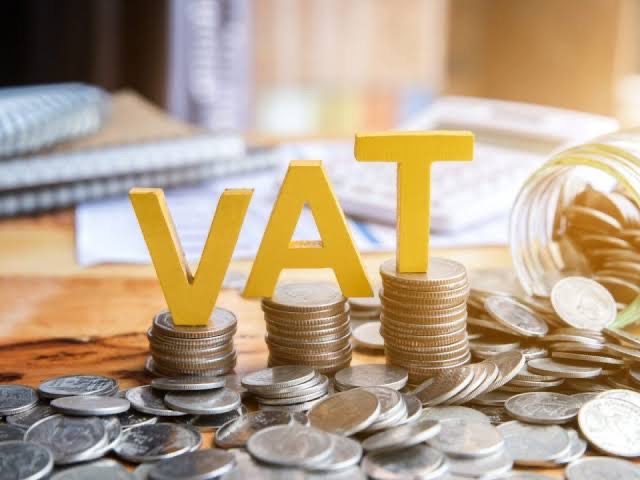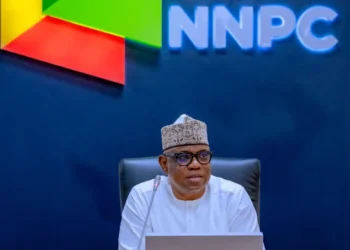Nigeria hopes to tap its estimated $56.7 billion cryptocurrency market by imposing a 7.5 percent value-added tax on cryptocurrency transactions. Starting July 8, 2024, crypto platform KuCoin will begin levying a 7.5 percent value-added tax on transaction fees.
This is aimed at complying with Federal Inland Revenue Service (FIRS) requirements and avoiding potential clashes with tax authorities, with the Binance scandal still fresh in the memory of many stakeholders.
Nigeria is home to the world’s largest peer-to-peer (P2P) cryptocurrency market. According to Chainalysis, a global blockchain platform, cryptocurrency trading in the country reached $56.7 billion between July 2022 and June 2023. The Executive Director of the Securities and Exchange Commission (SEC), Emomotimi Agama, recently stressed that a large proportion of the population is involved in trading and trading cryptocurrencies.
He said, “Cryptocurrency trading volume in Nigeria is reported to have reached $56.7 billion between July 2022 and June 2023, recording a 9 percent growth year-on-year.”
In an email to customers on Wednesday, KuCoin platform says “We would like to inform you of an important regulatory update that will affect users in the Republic of Nigeria. Effective July 8, 2024, we will start charging 7.5 percent Value Added Tax (VAT) on the transaction fee for each transaction for users whose KYC information is registered in Nigeria.”

The platforms pointed out have indicated that VAT will be charged. It is based on the transaction fee, not the transaction amount, and covers all transaction types on the KuCoin platform.
This is explained as follows;
“Transaction: Buy 1,000 USDT worth of BTC. Fee: 1 USDT (0.1 percent fee rate). Tax: 0.075 USDT (7.5 percent of the fee). Net Amount for Transaction: 998.925 USDT.”
Nigeria had initially planned to tax cryptocurrencies through the Finance Bill of 2022, which would have imposed a 10% tax on profits from digital assets, including cryptocurrencies.
“Subject to the exceptions set out in this Act, any form of property, whether located in Nigeria or not, including options, liabilities, digital assets, and intangible assets generally, shall be considered as property for the purposes of this Act.”
However, this part of the Act was never put into effect. Experts suspect that KuCoin’s move could be part of an effort to obtain a license in Nigeria.
“What KuCoin is doing is probably part of the license conditions. You can’t collect taxes from unlicensed operators. Other exchanges need to see this and follow suit,” said Chimeji Chuta, founder and coordinator of the Blockchain Nigeria Users Group.
“KuCoin used to do P2P but had to stop. The fact that they made this request means they spoke to the government and this is part of the government’s demand for compliance.”
Despite a December 2023 Central Bank of Nigeria (CBN) directive aimed at regulating the digital asset sector, Nigeria cracked down on cryptocurrency trading in early 2024. Scapegoating Binance as part of its measures, the country has asked telecommunications companies to restrict access to the platform and urged telecommunications operators to remove naira trading from the platform. The country accused the platforms of facilitating the manipulation of the naira-dollar exchange rate and supporting illicit financial flows.
In February, CBN Governor Olayemi Cardoso announced that $26 billion had flowed through Binance Nigeria from unknown sources and users in a year. “Suffice it to say that we are determined to do whatever is necessary to ensure that we have control over the market and do not allow manipulation by others. We will not stand for this and will do everything possible to ensure that there are no violations,” he explained.

This ultimately led to the arrest of Tigran Gambariyan, head of investigations at Binance, and Nadeem Anjarwala, a British lawyer and manager of a Kenya-based cryptocurrency exchange (who later fled), on delisting charges. Africa has removed the naira from all peer-to-peer crypto platforms, including KuCoin, and the CBN has temporarily banned some fintech companies from opening accounts.
Speaking at a dialogue session with Nigeria’s blockchain industry, Agama said: “The delisting of the naira from the P2P platforms is to avoid the level of manipulation that is currently happening.” He also accused the company of failing to register and pay tax in Nigeria to the FIRS.
Dare Adekanbi, special media adviser to FIRS Executive Chairman Zack Adedeji told Journalists that KuCoin’s decision to impose VAT on the company should be commended as it demonstrates a willingness to comply with prevailing Nigerian tax laws.
“We at the FIRS are pleased that the corporate organization is willing to comply with the laws of the country as far as revenue collection is concerned. This is what a responsible company should do without being asked or forced to do,” he said.
He stressed that the Nigerian market is huge and cryptocurrency companies are interested in doing business in Nigeria. “Given our recent action against one of them, we are pleased to see other companies looking to expand their business or enter the country following suit,” Adekanbi added.
However, the move has raised questions about the legality of cryptocurrencies in Nigeria. Chuta, quoted earlier, said: “The question is whether the CBN has approved this, whether they agree with this, or whether the FIRS is just pushing this. If the CBN agrees with this, then it will automatically regulate the crypto industry because you can’t tax something that is not recognized. You can’t collect tax from an unauthorized company.”
When Journalists asked Adekanmbi of the FIRS, he replied, “But the payment of tax is mandatory for companies operating in Nigeria.” Chuta also stressed that the move will also increase transparency in the ecosystem and will create some kind of compliance framework.
Nigeria joins other African countries in taxing cryptocurrencies. Kenya announced that it will deduct 20% from trading fees charged by exchanges in 2022.
In a separate report, the Kenya Revenue Authority (KRA) announced plans to deduct 3 percent from income earned by citizens from the sale of crypto assets.
CV VC’s Africa Blockchain Report 2022 said South Africa does not have clear cryptocurrency tax regulations, but the taxation of digital assets is covered by existing rules.
Joel Chibueze, a Lagos-based crypto industry player, said imposing a value-added tax on crypto transactions is a means to regulate the industry, noting that it will have a negative impact on the industry.
“I think this is part of the regulation to regulate fraud and underground trading in the industry. But we are also sending a signal that we want to stifle the industry. My position is, if you can’t give people jobs, you should at least allow them to continue living their lives and not suffocate them in them.”

































